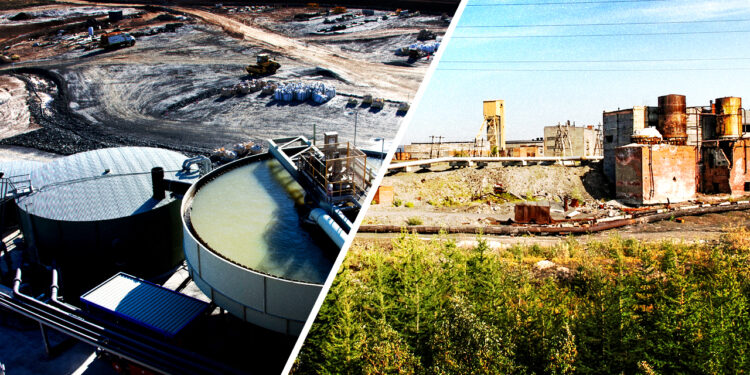Airdrie-Cochrane NDP candidate Shaun Fluker is listed as a legal counsel on a factum submitted to the Supreme Court of Canada in support of Bill C-69, the Impact Assessment Act (IAA), better known as the ‘No More Pipelines Act.’
On May 24, a reporter asked his opinion on Bill C-69, but he pivoted and said he could not answer the question now. The reporter asked Fluker for his position a second time, where he admitted to “advocating on behalf of his client’s position” but clarified he did not assert his work.
According to legal funding from the Supreme Court, the Airdrie-Cochrane candidate argued in favour of the wildly unpopular legislation. Fluker and two other lawyers from the University of Calgary’s Public Interest Law Clinic intervened on behalf of the Canadian Association of Physicians for the Environment (CAPE) on March 21.
Airdrie-Cochrane UCP candidate Pete Guthrie condemned Fluker and the Alberta NDP for “hiding their record of destroying our energy sector.”
“If Rachel Notley supported oil and gas, why would she recruit a candidate who supports Trudeau’s ‘no more pipelines’ act? Their disdain for the energy sector has never been clearer,” he said.
Saskatchewan and Alberta are contesting Ottawa’s “no more pipelines” bill in the Supreme Court this week.
Both will argue Bill C-69 violates Section 92A of the Constitution and intrudes on provincial jurisdiction.
Stay tuned for more updates 👀https://t.co/tETwCmCuA6
— Alex Dhaliwal (@westcdnfirst) March 22, 2023
On March 22 and 23, Alberta and Saskatchewan argued the IAA violated Section 92A of the Constitution Act and overstepped into provincial jurisdiction. All other provinces and territories also participated, excluding P.E.I. and Nova Scotia.
The IAA authorizes federal regulators to examine the effects of significant infrastructure projects, such as highways, mines, and pipelines, for environmental impact and social issues.
“Last May, Alberta’s Court of Appeal ruled that the Impact Assessment Act was unconstitutional in a 4-1 decision. Seven other provinces are joining Alberta as interveners in this case and to defend provincial rights,” Alberta Justice Minister Tyler Shandro told reporters.
However, Ottawa appealed the decision soon after for review before the Supreme Court, asking them to overrule the Alberta Court of Appeal ruling.
Shandro said a successful appeal would guarantee federal intrusion into local control over resource development. He called it a “wrecking ball” and a “Trojan horse.”
Natural Resources Minister Jonathan Wilkinson said Ottawa would soon show Canadians its plan to transition to a net-zero economy. Despite outcry from Alberta and Saskatchewan, they have ramped up their efforts to table ‘just transition’ legislation.
MORE: https://t.co/VeVkJGSTWg pic.twitter.com/sg51AydFUP
— Rebel News (@RebelNewsOnline) April 14, 2023
“Alberta’s economic well-being, and the employment and prosperity of its population, are dependent on its ability to manage and develop its natural resources sustainably, particularly its oil and gas resources,” submitted Shandro in written filings to the highest court in the land.
On April 5, federal Justice Minister David Lametti opened the door to revoking the 1930s Natural Resources Transfer Agreement with the prairie provinces to guarantee Indigenous consultations on resource development.
Trudeau also reaffirmed Ottawa’s commitment to the U.N. Declaration on the Rights of Indigenous People (UNDRIP). “We will continue to work with provinces to ensure that they are also moving forward on the path of reconciliation,” he said.
“Ottawa must back off from any plans of stripping resource rights away from Albertans,” tweeted Smith.
On May 4, Rebel News asked her to clarify Indigenous consultations concerning Bill 1, the Alberta Sovereignty within a United Canada Act, and whether she felt it was sufficient.
Premier Danielle Smith tells Rebel reporter Alex Dhaliwal (@westcdnfirst) that her Sovereignty Act is about Alberta’s relationship with Ottawa, and that the UCP government has “a tremendously positive relationship with First Nations” after some criticized the legislation. pic.twitter.com/CxGW7Z7yWq
— Rebel News (@RebelNewsOnline) May 4, 2023
“If you look at the first couple of clauses of that Act, you will see it affirms the s.35 treaty rights of our Indigenous Peoples,” she said, clarifying “the act was never about interfering or impacting those rights.”
Smith lauded her government’s relationship with First Nations as “tremendously positive,” as First Nation groups supported the province in their opposition to Bill C-69. “It is about Alberta’s relationship with Ottawa, as defined by s.92 and s.92A of the Constitution,” she said.
“Most provinces agree that the IAA is a significant federal overreach that will stop future infrastructure and resource development in Canada,” said Saskatchewan’s Justice Minister Bronwyn Eyre. She contends the bill causes significant harm to investor confidence.
“This Act threatens the long-term economic prosperity of our province, our energy industry and the entire country,” she said. “We want to grow investment in Alberta, not have it driven away by unbalanced, unpredictable new rules for major projects.”
Shandro concurred with Eyre, stating Bill C-69 not only harms the economy but violates the exclusive constitutional jurisdiction of provinces and territories to control the development of their natural resources.
‘It’s become quite clear that the price the federal government has set is not the same in every province,’ says UCP leader Danielle Smith. ‘Québec is going to have a much lower carbon tax price than Alberta.’https://t.co/vKFKzy64Tm
— Rebel News (@RebelNewsOnline) May 29, 2023
https://www.rebelnews.com/alberta_ndp_candidate_advocated_for_no_more_pipelines_act_during_supreme_court_appeal







